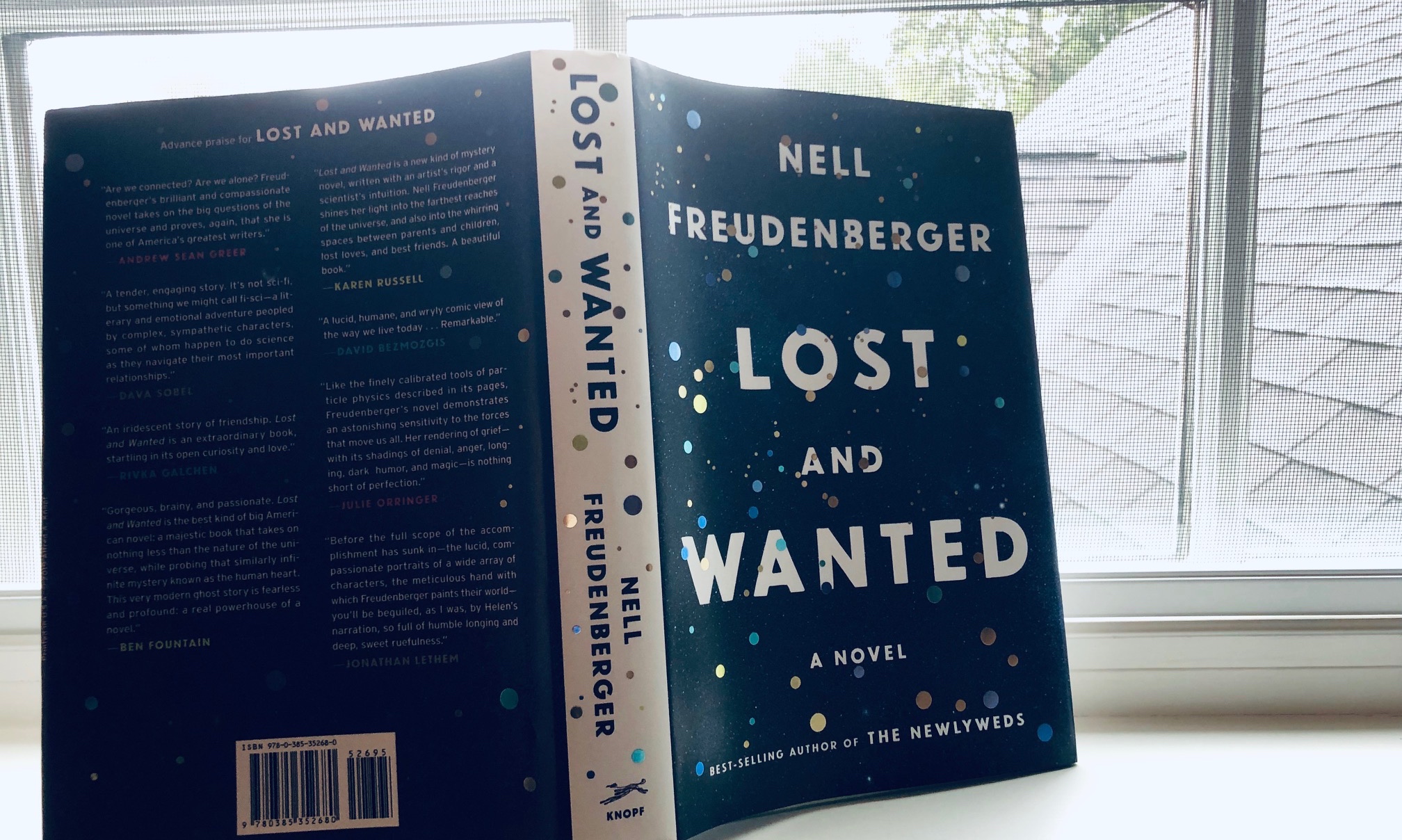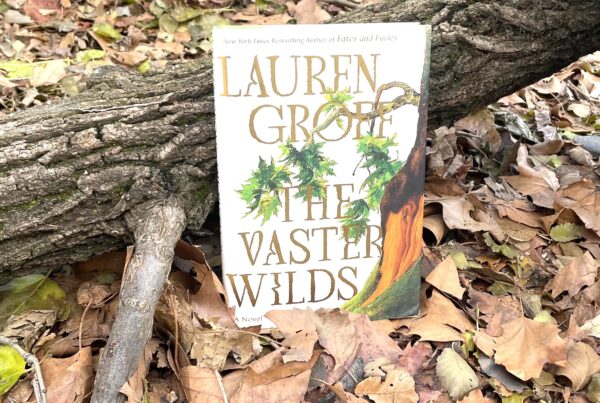Although I tried my best, I never truly understood most of the key concepts in my high school Physics class. While my teacher drew arcs and waves on the blackboard and rattled off formulas for calculating things like time, distance and speed, I sat in mild to moderate panic, waiting for the proverbial lightbulb to blink on in my head. So when I found myself drawn to a book about a physicist this month – Nell Freudenberger’s Lost and Wanted – I suspected that its gravitational pull on me was due at least in part to the feeling that for years, I have been lost in space during discussions involving this science.
Helen Clapp is a tenured physics professor at MIT who, with her friend Neel Jonnal, created a “model for quark gluon plasma as a dual black hole in curved five-dimensional space-time” and assumed her place in the high-ranking reaches of her field at just 33. Helen, author of books for physics laypeople such as Into the Singularity, is a single parent overseeing graduate students when she learns that her best friend Charlotte Boyce, a successful television writer living in Los Angeles with her husband and daughter, has died. Helen and Charlotte, called Charlie, were not in good communication before Charlie’s death, and Helen did not know that she was ill.
Very early in the novel, a mystery is framed out: why did Helen and Charlie fall out of touch such that Helen did not know that Charlie was not well? To amplify the mystery further, despite the fact that Charlie has now died, Helen continues to receive text messages from her. Helen does not typically believe in the supernatural. “In my line of work, I do get asked about the paranormal,” Helen narrates. “What I normally say is that it isn’t that magical things are necessarily impossible – only that they must be confined to environments we haven’t yet observed.” However with continuing technological nudges from Charlie’s lost cellphone, along with Helen’s son’s insistence that he saw Charlie in Helen’s office and Helen’s own feeling that Charlie’s presence is still very much at work in the world, readers are invisibly pulled into Freudenberger’s skilled plotwork, much as a satellite is pulled into orbit.
While I can’t say, after finishing this book, that I understand things like LIGO, CERN, Higgs-Boson or the Hadron Collider any better, I do feel more comfortable with the concept of relativity. How things look, and even feel, depends on the position from which we are looking and feeling. At Charlie’s funeral, her brother reads a poem by W. H. Auden about the moon: “This like a dream/ Keeps other time/ And daytime is/ The loss of this./ For time is inches/ And the heart’s changes/ Where ghost has haunted/ Lost and wanted.”
Sometimes, especially in moments of grief, time moves in such slow increments that all things, and no things, seem possible. Nell Freudenberger’s captivating Lost and Wanted bridged a gap for me between the world I live in – words, relationships and ideas – and the physical world, with its ever expanding set of properties, elements, and mysteries. In her latest winner, Freudenberger works her quiet power on readers.




